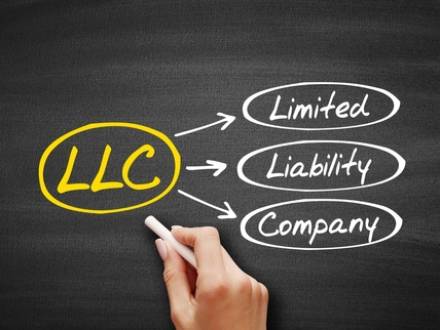Contact Our Firm
The use of the Internet or this form for communication with the firm or any individual member of the firm does not establish an attorney-client relationship. Confidential or time-sensitive information should not be sent through this form.
I have read and understand the Disclaimer and Privacy Policy.

Recent Blog Posts
Top Florida Foreclosure Defense Strategies
 It can be a scary prospect when a lender brings a foreclosure action on your home. However, there are several important defenses to a Florida foreclosure action and a qualified Florida attorney can advise you on the defense strategy that is relevant to your foreclosure case.
It can be a scary prospect when a lender brings a foreclosure action on your home. However, there are several important defenses to a Florida foreclosure action and a qualified Florida attorney can advise you on the defense strategy that is relevant to your foreclosure case.
What is a Foreclosure Action and Defense?
If you stop making payments on their loan, which can happen when facing financial difficulties, a lender can file a foreclosure action to force the sale of the property. A foreclosure is a judicial action in court, and, as a homeowner, you will have an opportunity to defend yourself against a foreclosure action by using a number of defenses in court. There are also legal options to defend your foreclosure outside of the court process.
Top 6 Reasons Single-Member LLCs Need Operating Agreements
 One of the most common methods of structuring a business in Florida is as a limited liability company (LLC). This corporate structure is very versatile and can be used for various business purposes. LLCs are also favored because they help shield business owners from liability. Another benefit of the LLC is that solo entrepreneurs may also create a single-member LLC. In fact, that is one of the most common reasons for forming an LLC in Florida.
One of the most common methods of structuring a business in Florida is as a limited liability company (LLC). This corporate structure is very versatile and can be used for various business purposes. LLCs are also favored because they help shield business owners from liability. Another benefit of the LLC is that solo entrepreneurs may also create a single-member LLC. In fact, that is one of the most common reasons for forming an LLC in Florida.
Although business owners are not legally required to draft an LLC operating agreement when forming a single-member LLC, an LLC operating agreement drafted by an experienced business law attorney can ensure liability protection and stability.
What Are the Top Six Reasons Why a Single-Member LLC Should Have an Operating Agreement?
-
Liability protection: One of the primary benefits of an LLC is that it differentiates between the LLC owner and the company. This can help shield the owner from potential liability. The existence of an LLC operating agreement goes a long way toward showing that the business is operated by a separate legal entity and not by the owner, which can guard against losing liability protection in court.
What Is a Quiet Title Action and When Is It Necessary?
 Whether you purchase or sell real estate, one of the most important parts of the transaction process is making sure there is a clean title. This is especially true if you are looking to sell a property because you will be unable to transfer the title if there are claims attached to it.
Whether you purchase or sell real estate, one of the most important parts of the transaction process is making sure there is a clean title. This is especially true if you are looking to sell a property because you will be unable to transfer the title if there are claims attached to it.
Clearing a title of any liens or claims sometimes requires a legal procedure called a quiet title action. This article will explore what a quiet title action is, when it is necessary, and how to contact a Florida real estate attorney for more details.
What Is a Quiet Title Action?
A quiet title action is when the owner of a property files a lawsuit to "quiet" any claims to the real estate and thus clear the title. The purpose is to settle the title so that the ownership is undisputed and cannot be challenged. After a quiet title action is concluded, the property’s rightful owner is protected from any further claims against the property.
4 Tips for Startups Seeking Venture Capital Funding
 Startups have a few options when they look to raise capital. Some access debt instruments, like loans, while others might try to raise capital through crowdfunding. One of the most common financing methods startups use is venture capital financing. This is where an investor provides funding in exchange for a stake in the company, referred to as equity.
Startups have a few options when they look to raise capital. Some access debt instruments, like loans, while others might try to raise capital through crowdfunding. One of the most common financing methods startups use is venture capital financing. This is where an investor provides funding in exchange for a stake in the company, referred to as equity.
Venture capital financing is popular among startups, particularly early-stage companies who cannot obtain loans. It also means the company does not have to pay the investor back because the investor receives a piece of the company.
However, there are certain legal considerations to keep in mind when seeking venture capital financing, four of which will be discussed in this article. Remember that a Florida corporate lawyer is essential to making sure a business gets safely and successfully off the ground.
What Are the Key Elements of a Solid NDA?
 A non-disclosure agreement (NDA) is a great way to protect company information while interacting with potential partners, employees, or other outside parties. It is an agreement that prohibits one or both sides from using or disclosing information that is considered confidential. There are two main types of NDAs:
A non-disclosure agreement (NDA) is a great way to protect company information while interacting with potential partners, employees, or other outside parties. It is an agreement that prohibits one or both sides from using or disclosing information that is considered confidential. There are two main types of NDAs:
- Non-mutual NDAs: This is a one-sided agreement that prohibits the other party, the recipient, from using or disclosing information about your company, the disclosing party. This is typically used when interviewing potential employees.
- Mutual NDAs: This agreement prohibits both sides from using or disclosing each other’s information. This is often used when two companies are considering entering into a partnership.
However, an NDA that is not drawn up correctly may not hold up in court and can cause a company serious damage. That is why any agreement should be created by an experienced Florida corporate lawyer.
Do I Need a Lawyer to Evict My Tenant?
 Evicting a tenant is often a difficult and stressful experience. As a landlord, you may feel conflicted, especially if your tenant is facing financial problems or personal struggles. However, when a tenant is not following the terms of their lease, eviction may become necessary.
Evicting a tenant is often a difficult and stressful experience. As a landlord, you may feel conflicted, especially if your tenant is facing financial problems or personal struggles. However, when a tenant is not following the terms of their lease, eviction may become necessary.
Eviction involves following very specific steps. Even minor mistakes can lead to major delays or even case dismissals, forcing landlords—even when they are in the right—to start the eviction process all over again. Knowing your rights and responsibilities is crucial to handling the situation correctly, and a Florida landlord attorney can help you do just that.
When Can Tenants Be Evicted in Florida?
In Florida, landlords may need to evict a tenant for several reasons, including:
- Failure to pay rent: When a tenant does not pay rent on time or at all
When Should You Consider an LLC For Your Business?
 As a Florida entrepreneur, you have big dreams for your business. But before you can bring those dreams to life, you need to decide how you want to structure your company. Many business owners find themselves wondering if a Limited Liability Company (LLC) is the right choice. This decision should not be taken lightly as it can impact your personal liability, taxes, and even your day-to-day operations. A Florida lawyer can help you understand which structure may be ideal for your needs.
As a Florida entrepreneur, you have big dreams for your business. But before you can bring those dreams to life, you need to decide how you want to structure your company. Many business owners find themselves wondering if a Limited Liability Company (LLC) is the right choice. This decision should not be taken lightly as it can impact your personal liability, taxes, and even your day-to-day operations. A Florida lawyer can help you understand which structure may be ideal for your needs.
What Is an LLC?
An LLC combines features of corporations and partnerships. It offers personal asset protection while allowing flexible management. This structure can be ideal for many small to medium-sized businesses.
LLCs provide protection between your personal assets and business liabilities, similar to a corporation. At the same time, they offer the operational flexibility of a partnership. This means you can run your business without the strict formalities required for corporations, such as holding regular board meetings or issuing stock.
How to Handle a Franchise Agreement Dispute
 A franchise agreement forms the backbone of successful business relationships. However, disputes can arise, potentially jeopardizing your investment and business operations. Understanding how to handle these conflicts is vital for protecting your interests and maintaining a profitable franchise. A Florida lawyer can help you with any issues you may be facing with your business agreements.
A franchise agreement forms the backbone of successful business relationships. However, disputes can arise, potentially jeopardizing your investment and business operations. Understanding how to handle these conflicts is vital for protecting your interests and maintaining a profitable franchise. A Florida lawyer can help you with any issues you may be facing with your business agreements.
Common Causes of Franchise Agreement Disputes
Franchise disputes stem from various issues, each with the potential to significantly impact business operations. Territorial encroachment is a frequent concern, occurring when a franchisor allows a new franchise to open too close to an existing location. For instance, a pizza franchise owner might see their sales plummet after the franchisor opens a new outlet just blocks away.
Performance standards can become a hurdle when franchisors claim franchisees are not maintaining required quality levels for products or services, potentially ruining the brand’s reputation. Misrepresentation of earnings potential is another cause of disputes. Franchisees may argue they were shown inflated profit projections during the sales process, leading to unrealistic expectations and financial strain.
Hidden Title Issues That Can Derail Your Real Estate Deal
 As a prospective homebuyer or seller in Florida, you might think that a clear title is a given in any real estate transaction. However, hidden title issues can lurk beneath the surface, potentially derailing your deal and causing significant legal and financial headaches. A Florida lawyer can help you understand some of these hidden title problems and explain why thorough due diligence is vital in any real estate transaction.
As a prospective homebuyer or seller in Florida, you might think that a clear title is a given in any real estate transaction. However, hidden title issues can lurk beneath the surface, potentially derailing your deal and causing significant legal and financial headaches. A Florida lawyer can help you understand some of these hidden title problems and explain why thorough due diligence is vital in any real estate transaction.
The Importance of a Clear Title
A clear title is fundamental to any real estate transaction. It ensures that the seller has the legal right to transfer ownership of the property and that there are no competing claims or encumbrances. However, various issues can cloud a title, even if they are not immediately apparent.
For example, imagine purchasing a home only to discover months later that a previous owner’s heir is claiming ownership rights. Or consider a scenario where you buy a property, unaware that it has an outstanding lien from unpaid contractor work. These situations can help you understand why a clear title is crucial and how it protects you from unexpected claims and financial burdens that could arise from past issues with the property.
Why Business Succession Is an Important Part of Estate Planning
 A comprehensive estate plan is essential for everyone, since it can protect assets and ensure that a person’s wishes will be carried out after their death. For business owners, estate planning should include a business succession strategy. A business succession plan is vital to ensure the smooth transition of ownership and management of a business, whether to family members, partners, or other parties. An experienced attorney can help business owners determine the best steps to take to protect their businesses, their families, and their financial interests.
A comprehensive estate plan is essential for everyone, since it can protect assets and ensure that a person’s wishes will be carried out after their death. For business owners, estate planning should include a business succession strategy. A business succession plan is vital to ensure the smooth transition of ownership and management of a business, whether to family members, partners, or other parties. An experienced attorney can help business owners determine the best steps to take to protect their businesses, their families, and their financial interests.
The Importance of Business Succession Planning
Business succession planning is the process of determining how a business will continue to operate in the event of the owner’s retirement, death, or incapacitation. Without a succession plan, a business may face uncertainty, conflict among heirs or partners, and potential financial losses. A well-thought-out succession plan can ensure that a business remains viable and successful for years to come.















